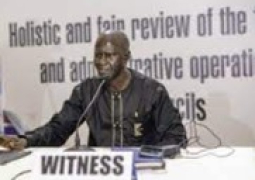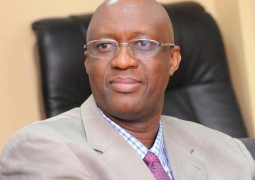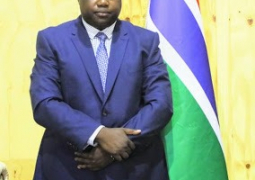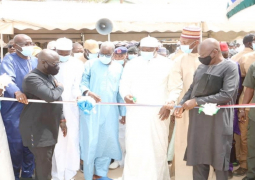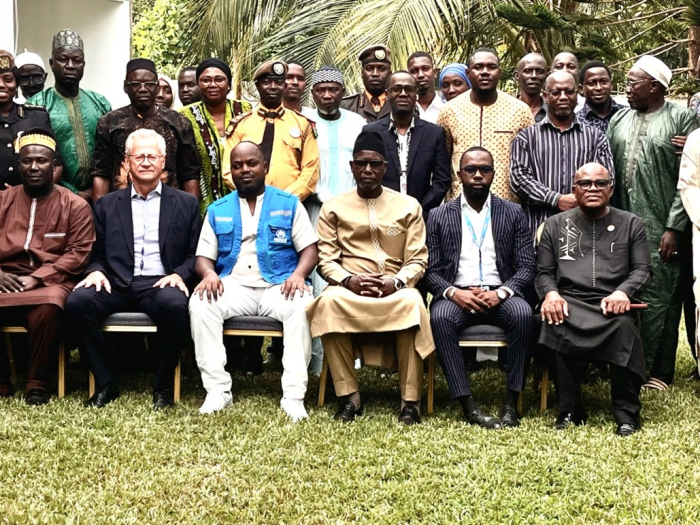
According to the assessment, The Gambia currently hosts 4,603 persons of concern, comprising 4,099 refugees and 504 asylum seekers as of November 2025. Most of these individuals reside in communities within the Foni districts in the West Coast Region, while others live across the Greater Banjul Area. Refugees contribute to local and national development through agriculture, petty trading, and informal labour, but continue to face significant livelihood constraints, including limited access to employment, land, and financial and social services.
In his statement, GAFNA Executive Director Yusufa J. Gomez highlighted GAFNA’s long-standing partnership with UNHCR, which spans more than two decades. He explained that GAFNA, established in 1986, has implemented numerous national projects on health, nutrition, agriculture, humanitarian response, and community development. Through its collaboration with UNHCR, the organisation continues to provide critical support to refugees across the Foni communities and the Greater Banjul Area.
Gomez described the refugee population as comprising two caseloads. The majority are rural-based refugees from the Casamance region of southern Senegal who have lived in the Foni area for many years. The second group lives in urban and peri-urban communities in the Greater Banjul Area, originating from Senegal, Togo, Cameroon, DR Congo, Sudan, Afghanistan, and other countries. He noted that these refugees face numerous challenges related to livelihoods, health, education, and social protection after fleeing conflict and instability in their countries of origin.
GAFNA’s interventions, supported by UNHCR, include water supply systems for domestic use and gardening, agricultural and horticultural inputs, vocational skills training and toolkits, Sexual and Gender-Based Violence and human rights sensitisation, education support for refugee students, and welfare assistance for elderly, disabled, and health-challenged individuals. Gomez emphasised that these programmes aim to promote self-reliance, reduce vulnerability, and sustain peaceful coexistence between refugees and their host communities.
He also acknowledged the support of the United States Embassy in Banjul and expressed appreciation to the government of The Gambia for upholding international commitments under the 1951 Refugee Convention.
Speaking on behalf of the UNHCR Dakar office, Martin Kaberuka praised The Gambia’s long tradition of solidarity in hosting refugees fleeing persecution, conflict, and instability.
He said the ongoing socio-economic assessment offers essential insights into the experiences of refugees, including their resilience and the systemic barriers they encounter. These challenges include dependence on informal work, restricted documentation limiting employment opportunities, limited access to formal education and vocational training, and additional vulnerabilities women and girls face.
Kaberuka linked the assessment to the objectives of the Global Compact on Refugees, which calls for easing pressure on host countries, enhancing refugee self-reliance, expanding third-country solutions, and supporting safe returns. He urged stakeholders to strengthen legal frameworks, expand skills training and entrepreneurship support, promote gender-sensitive programmes, foster multi-stakeholder partnerships, and establish strong monitoring mechanisms. He reaffirmed UNHCR’s commitment to advancing inclusion, resilience, and shared responsibility.
In his keynote address, Minister for Interior Abdoulie Sanyang underscored the government’s commitment to refugee protection under the 1951 Refugee Convention. He described The Gambia as a country defined by peace and compassion, noting that despite limited national resources, communities particularly in the Fonis have shared land, food, and support with refugees. He emphasised that refugees contribute to national development through agriculture and small-scale enterprises and so credible data from the assessment will help design effective policies promoting economic empowerment and social inclusion.
Minister Sanyang outlined three government priorities. These include integrating refugee livelihoods into national development plans, strengthening collaboration among ministries and partners to ensure refugees benefit from national social protection programmes, and promoting peaceful coexistence between refugees and host communities through inclusive community development initiatives. He called for stronger partnerships with development agencies and the private sector to create employment, entrepreneurship, and training opportunities for both refugees and host communities.


